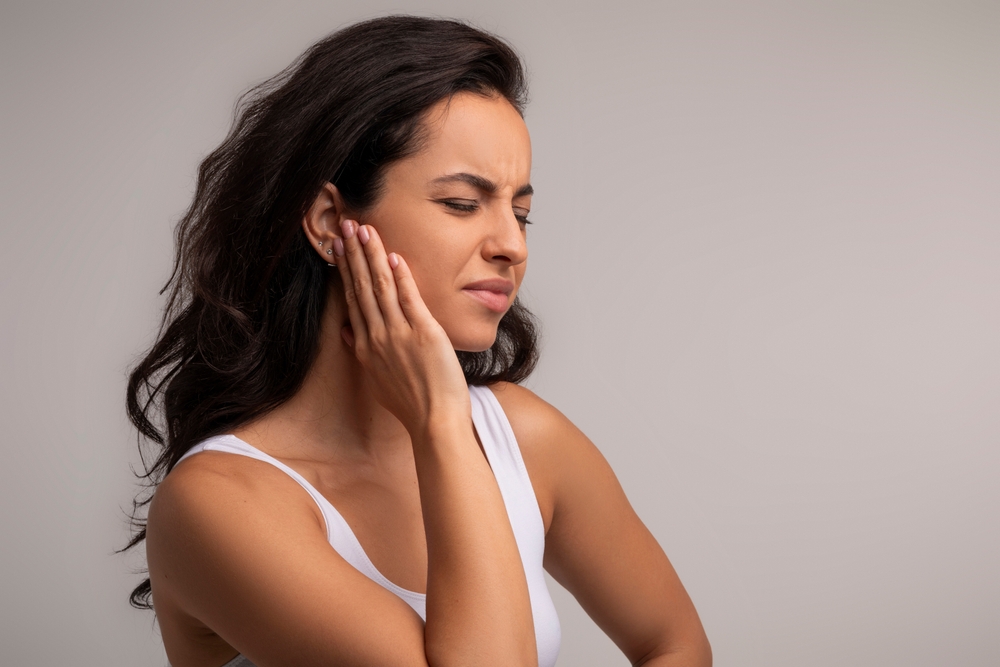When you have hearing loss, there’s one thing you might actually hear better: the ringing in your ears. Well, maybe it’s not ringing. It could be buzzing, thumping, whumping, or humming. The medical term for this is “tinnitus.” And as hearing loss sets in, you could start to hear these sounds.
Or, at least, these sounds could become more noticeable. And that’s interesting because you’d expect the opposite to be true. This apparent increase in volume can be especially frustrating when you’re trying to sleep, for example, or read a book. That’s why a few innovative treatments for hearing loss are generating real excitement–because these treatments for hearing loss just might help your tinnitus as well.
The connection between hearing loss and tinnitus
This probably isn’t the first time you’ve heard the words “hearing loss” and “tinnitus” mentioned in the same article (or sentence, for that matter). These two hearing conditions tend to coexist quite often (they’re what scientists like to call “comorbid”–which is just a scary word to describe two symptoms or ailments that commonly present simultaneously.
The cause-and-effect relationship between hearing loss and tinnitus has always been murky, though in many cases it’s apparent that both maladies are a response to long-term noise damage to the ear.
Which comes first–tinnitus or hearing loss?
For some, hearing loss and ringing in the ears seem to spring up together; for others, a developing hearing impairment may make pre-existing tinnitus symptoms worse.
The working theory behind this is that devoid of external stimuli, the nerves in your inner ear start sending messages to your brain (the nervous system equivalent of pocket-dialed texts).
Your brain interprets these signals as sounds–so you start hearing a hum, a ring, a buzz–sometimes tinnitus can even sound like a whooshing, a pulsing, or the waves of the ocean. Whatever the sound, you hear it–and your brain has a really tough time turning it off.
Varied causes and varied treatments
Perhaps because of this specific interplay there is substantial evidence to suggest that treating hearing loss could lead to benefits for tinnitus as well. Here are a few examples:
- Gene Therapy: There’s no cure for sensorineural hearing loss–that’s the type of hearing loss most often associated with age-related impairments (including tinnitus). Some researchers are seeking to change that by improving the genetics of the ear. By slightly altering specific strands of DNA, the idea is that future scientists would be able to make ears more resilient–both to hearing loss and to tinnitus. It sounds like science fiction, sure, but there are some treatments that are very near the “human trials” stage.
- Regeneration: Sensorineural hearing loss is usually caused by damage to the stereocilia (the tiny hairs in your ear that sense vibrations and turn that moving air into sound). Stereocilia don’t have the ability to repair themselves on their own, so any damage becomes permanent. Some novel treatments are focusing on helping stereocilia regenerate–thus, helping you hear better.
- Hearing Aids: The most common form of treatment for hearing loss is still a good pair of hearing aids. These tiny devices have come a long way in the last couple of decades, integrating all kinds of cutting edge technologies that can help you hear in more challenging environments or even monitor your overall health. Hearing aids can help you stay connected to the world.
These treatments vary from radical to more common. But what they all have in common is that they could, in theory, help you with your tinnitus. As your ear receives stronger stimuli from the outside world, you’ll have fewer of those “phantom” signals from the nerves in your inner ear–and, thus, your tinnitus could diminish significantly.
Two for one
When you treat hearing loss, you’ll notice the obvious benefits rather quickly: you’ll be able to follow conversations at work, enjoy your happy hour with your co-workers and pay attention to the evening news. In other words–you’ll be able to hear better!
It might take you a bit of time to notice the other benefits–in particular, improvements to your tinnitus. Those benefits are worth the wait. And they suggest that in many cases, especially when these two ailments appear together, treating your hearing loss can help your tinnitus, too.



